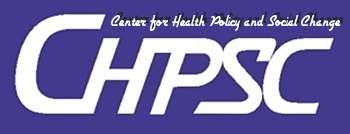share this post
The continued monetary crisis in Indonesia has affected public funding for health care and there is a need for new strategies and approaches to meet the health care needs of the Indonesian people. Government resources have not been sufficient to maintain the existing health systems, to meet increased demand due to population growth and rising public expectations, to increase access to services for those not covered by the current systems nor to improve the quality and level of care provided. Evidence has shown that much of the health care of many countries is being provided by the private sector, even among poor and rural populations. As efficiency concerns come to the fore, there is the greater willingness to see how the private sector can play a role in the provision of health care that was formerly provided by the government. For that reason, the GOI Ministry of Health (MoH) officially views the private sector as a partner in the provision of health services, and private health care providers are a significant part of the health care delivery system in Indonesia. In terms of health care provision, GOI actively encourages the private sector to become more involved in the direct provision of services. To achieve that goal, policymakers should know about what private providers could contribute to public health goals. The decision to collaborate with the private sector depends on whether working with the private sector offers a more cost effective way to achieve health objectives than other intervention involving public providers. It is usually believed that private providers are expensive and motivated by profit rather than the welfare of their consumers, are usually concentrated in urban areas, and provide only curative services and ignore prevention in primary health care.
The rapid escalation of cost of health caused by the economic crisis is likely to continue and virtually no one will be able to afford the full cost of health care. Thus it makes sense for the government to become proactive in managing resources and containing costs. The process of decentralization has been underway in Indonesia for a number of years but began in earnest in January 2001. The implication in decentralization was that functions, process and resources were devolved from the MoH to local authorities. Regional autonomy will allow district and provincial governments to raise local revenue to fund their recurrent and development costs. A good degree of regulatory control including licensing, accreditation and implementation of the health care system will now devolve to local governments. The central government ceased its role and instead began to concentrate on policy formulation, setting technical standards, monitoring, evaluation, and offering management advice and training. The increase in local regulatory authority and the efforts to raise local public revenues in the decentralization era have direct ramifications for the health sector in general and the private health sector in particular (Marzolf, 2002). This dual government role of regulator and competitor may discourage private health sector investment and development. Decentralization seems to hold both a threat and a promise for the private sector providers.
Private sector providers in Indonesia have been under researched and therefore there are no available studies to compare the quality of care in the public and private sectors. However, Swan and Zwi (1997) cit Smith (2001) stated that the available evidence revealed serious technical weaknesses in the services supplied by many for profit providers in developing countries. Lack of information and an ability to make sound judgments about the technical quality of available types of health care as well as information asymmetry are the major constraints when people purchase care. Poor prescribing, dispensing and self-medication practices waste scarce resources, harm individuals and contribute to the spread of infectious diseases.






















Comments :
Post a Comment